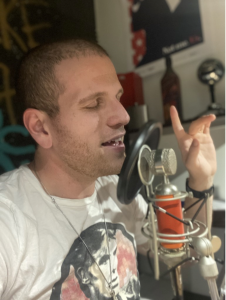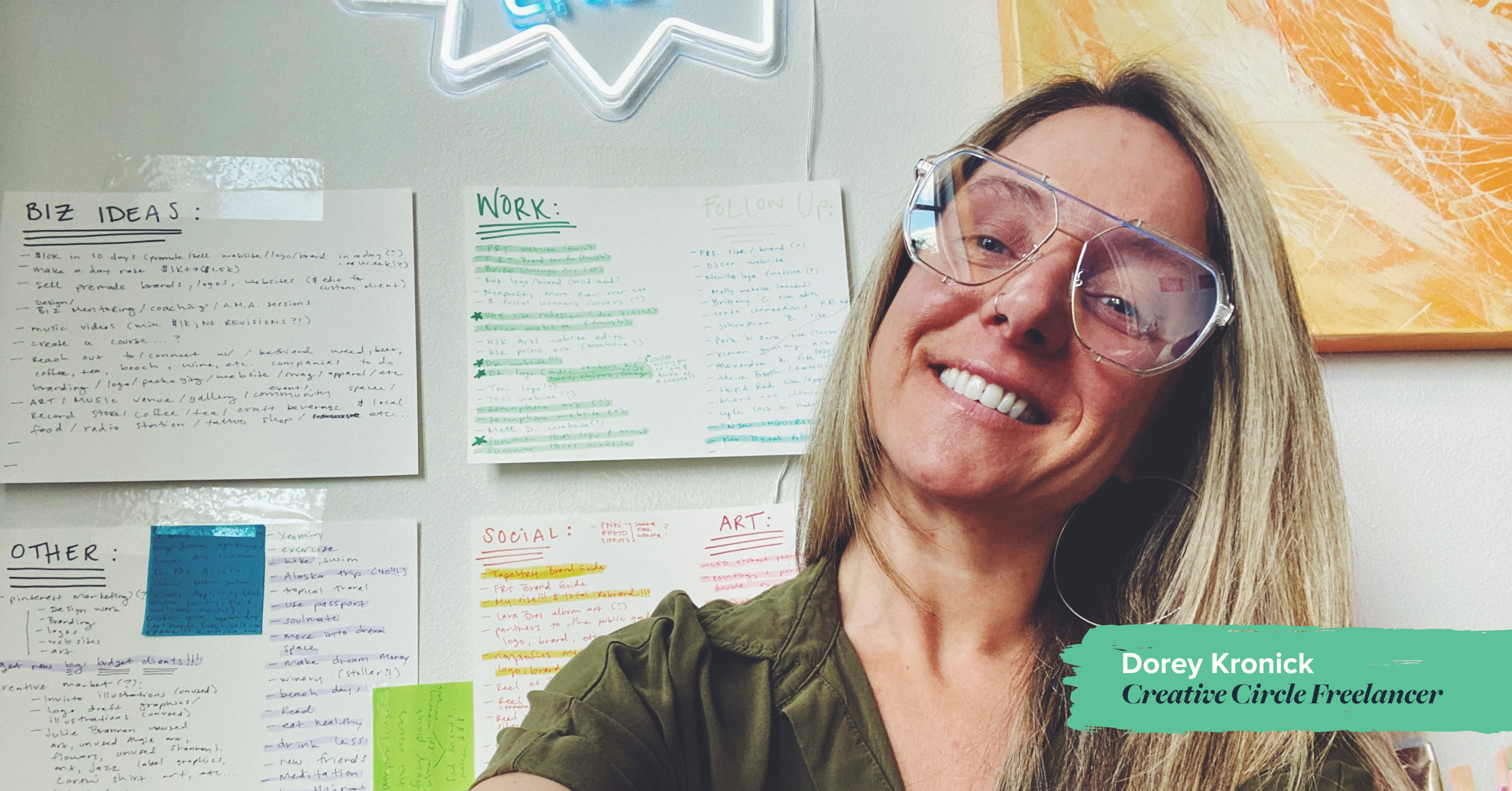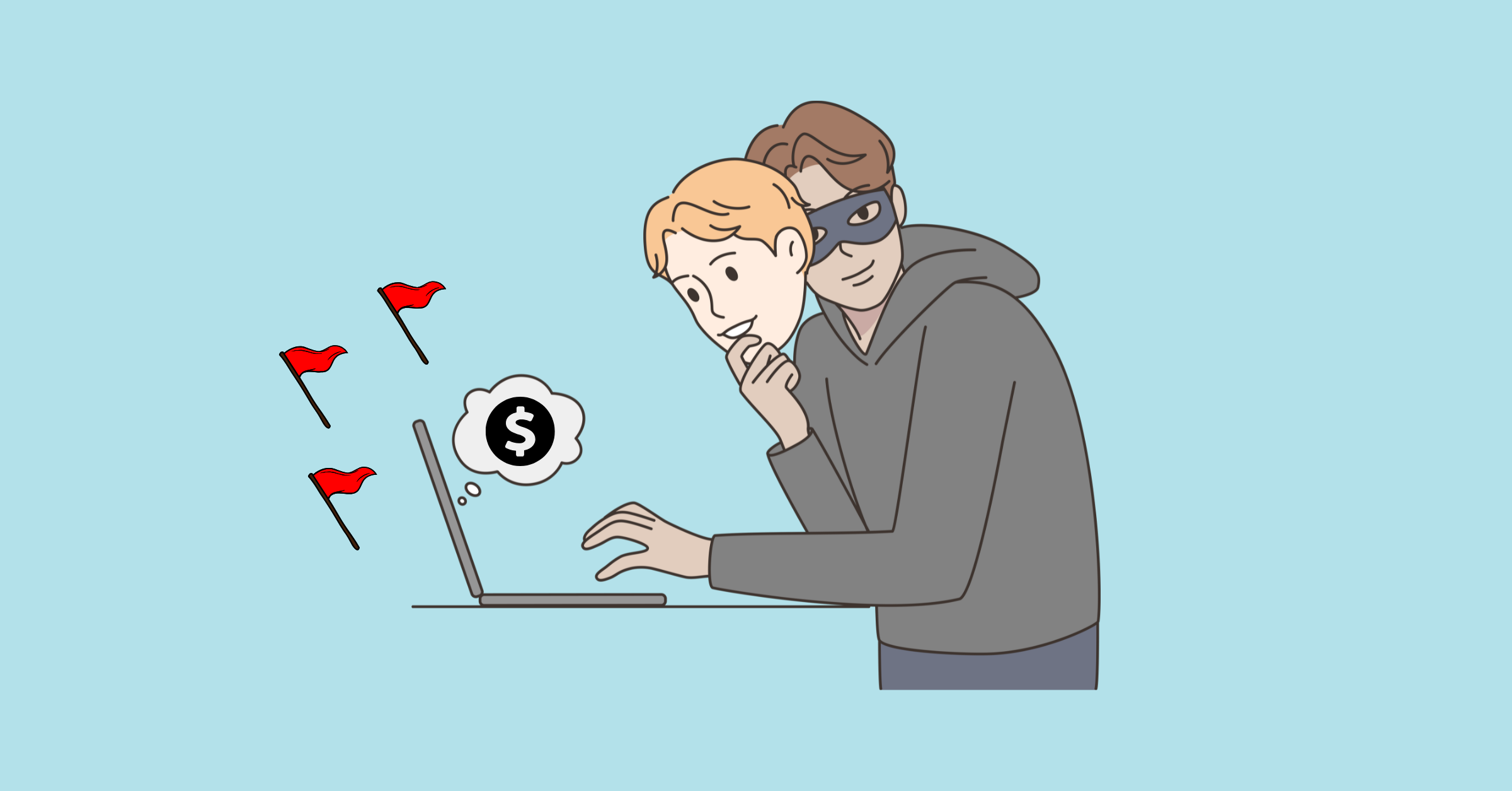Meet Greg Berman — a Los Angeles based stand-up comic (and writer … and actor … and data analyst) who performs multiple times a week to packed crowds at top comedy clubs. But when COVID-19 struck, the world of live comedy came to a screeching halt — and Greg was left doing stand-up to an audience of none. Read on to see how he is recalibrating his craft to bring laughter to quarantined audiences.

What do you do?
Prior to the pathogen, I did many things: screenwriting, working for the Bernie Sanders campaign (writing jokes for them on a volunteer basis), voice-over work. I’m an actor — I was on Chicago P.D. as a bad guy for a few episodes. I go where the story takes me. But what I am most of all is a stand-up comedian. All my friends are comics. People need laughter, and that’s what we do. But as much as we love making people laugh, we love having the crowd react. COVID-19 has taken away our medium, the live interaction with a crowd. But humans adapt. And a part of me is so curious — what are we going to do? How are we going to change? How can I deliver comedy without replicating something that people are missing?
What happened to comedy as a result of the coronavirus?
Technology and comedy have never been mixed. I think now, the question is being asked: what does comedy look like in the digital age? People are starting to ask: how do we adjust as performers to the tech as opposed to making the tech mimic reality?
Everyone is nervous, because comedy, as we know it, may not exist after we are done with this whole thing. If we can’t do large gatherings in comedy clubs, many comedians will not be able to maintain their lifestyle, and the ones that remain will likely be the ones who are already famous or making money some other way.
What’s your take on how the comedy world has tried to adapt to C19?
When comedy shows went away, all the comedians rushed to try it online, via Zoom or Instagram Live. What they were trying to do is replicate a comedy club experience on the internet, which I think is the wrong way to go about this. Comedy clubs are not meant to be viewed from the comfort of your home. Being around other people who are laughing makes you laugh more. In a Zoom show, no one laughing is weird, and people laughing who are muted is also strange. It’s not a real semblance of a crowd. Comedians went that route because it was the most obvious. They thought: if we make it feel just like a comedy club, we can keep performing. But it’s a different beast, and people realized that not everyone could adapt to those mediums, so there’s been some attrition. Now, some comics have started to work with the differences in the medium; Zoom is not a comedy club, but it is interactive … so what if it’s more like a trivia show? Or some folks are doing murder mysteries via Zoom, for example.
What has been your take on how to adapt your craft to these coronavirus times?
When everything shut down, the content creators felt they needed to continue making content but didn’t stop to ask what they should be making. They’re reviewing hot sauces and interviewing their friends. But I want to ask: “what does the world need right now? And can I provide that service?” I think the content has to support the medium and vice versa. Shouldn’t we come up with something better that makes people laugh? I’m a creator of levity — I’m still supposed to produce content. The question became: what should I create? I kept thinking about how I could deliver comedy without replicating something that people are already missing. What flag can I put in the ground? I think that’s the most essential part of what led me to my pivot.
How have you adapted to the realities of C19?
My pivot happened February 27th, at a show I produced at a yoga studio. I decided to use the place as inspiration and wrote a joke bit about guided meditation to connect to the show being at a yoga studio. I wrote the piece quickly, it took me maybe 30 minutes. And it was a big hit! So … I went and recorded ten and started a podcast — Greg’s Guided Meditations.
I describe the podcast as a super totally serious collection of guided meditations to get you focused, centered, and amused. This expression of my comedy is a departure. But what does feel similar to me is the connection. While I don’t get to hear the audience laugh, I do feel that I can connect with people in that way via the podcast. I definitely still miss the crowd — that’s what I love the most about comedy — but to watch the download numbers climb is one version of that kind of connection.

What has been the result of your adapted mode of work?
I have had my podcast out for four weeks, and people from 23 different countries have downloaded it — from all over the United States, Canada, Poland, Vietnam, Indonesia … It has motivated me to continue creating more podcasts.
There’s this nostalgia of wishing to do comedy live, but there is an opportunity to really entrench these created experiences for their own value. It’s fun to watch artists get new tools, and right in front of us, learn how to use them.
Check out Greg’s work!
Greg’s Guided Meditations
Instagram: @bermancomedy
Instagram: @gregsguidedmeditation
Greg’s Website
About the author.
An award-winning creator and digital health, wellness, and lifestyle content strategist — Karina writes, edits, and produces engaging content across multiple platforms — including articles, video, interactive tools, and documentary film. Her work has been featured on MSN Lifestyle, Apartment Therapy, Goop, Psycom, Pregnancy & Newborn, Eat This Not That, thirdAGE, and Remedy Health Media digital properties. You can see more of her work at karinamargit.com.




